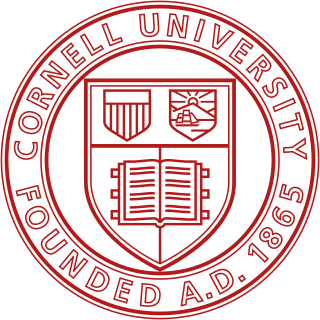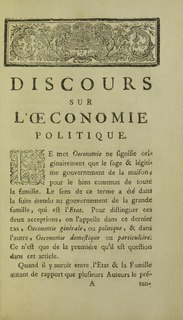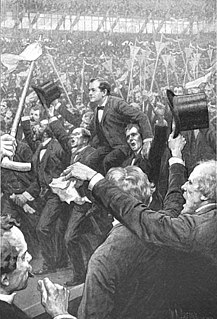
The Cross of Gold speech was delivered by William Jennings Bryan, a former United States Representative from Nebraska, at the Democratic National Convention in Chicago on July 9, 1896. In the address, Bryan supported bimetallism or "free silver", which he believed would bring the nation prosperity. He decried the gold standard, concluding the speech, "you shall not crucify mankind upon a cross of gold". Bryan's address helped catapult him to the Democratic Party's presidential nomination; it is considered one of the greatest political speeches in American history.

The United States presidential election of 1896 was the 28th quadrennial presidential election, held on Tuesday, November 3, 1896. Former Governor William McKinley, the Republican candidate, defeated Democrat William Jennings Bryan. The 1896 campaign, which took place during an economic depression known as the Panic of 1893, was a realigning election that ended the old Third Party System and began the Fourth Party System.

The United States presidential election of 1900 was the 29th quadrennial presidential election, held on Tuesday, November 6, 1900. In a re-match of the 1896 race, Republican President William McKinley defeated his Democratic challenger, William Jennings Bryan. McKinley's victory made him the first president to win consecutive re-election since Ulysses S. Grant had accomplished the same feat in 1872.

The United States presidential election of 1908 was the 31st quadrennial presidential election, held on Tuesday, November 3, 1908. Secretary of War and Republican Party nominee William Howard Taft defeated three-time Democratic nominee William Jennings Bryan.

William Jennings Bryan was an American orator and politician from Nebraska. Beginning in 1896, he emerged as a dominant force in the Democratic Party, standing three times as the party's nominee for President of the United States. He also served in the United States House of Representatives and as the United States Secretary of State under Woodrow Wilson. Just before his death he gained national attention for attacking the teaching of evolution in the Scopes Trial. Because of his faith in the wisdom of the common people, he was often called "The Great Commoner".
The People's Party was an agrarian political party in the United States. The Populist Party emerged in the early 1890s as an important force in the Southern United States and the Western United States, but the party collapsed after it nominated Democrat William Jennings Bryan in the 1896 United States presidential election. A rump faction of the party continued to operate into the first decade of the 20th century, but never matched the popularity of the party in the early 1890s.
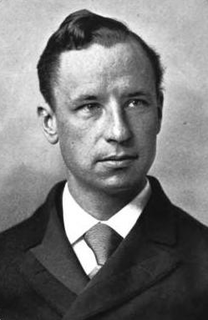
William Eustis Russell was a lawyer and Democratic Party politician from Massachusetts. He served four terms as mayor of Cambridge, and was the 37th Governor of Massachusetts, serving from 1891 to 1894. He was the state's youngest ever chief executive, and was the first Democrat since the American Civil War to serve more than one term in that office.
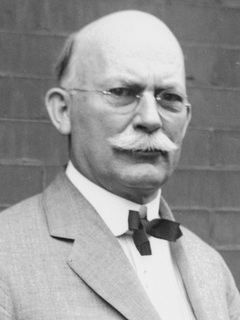
Charles Wayland Bryan was an American politician who served as the 20th and 23rd Governor of Nebraska, and Mayor of Lincoln, Nebraska, and was the Democratic nominee for Vice President in 1924. He was the younger brother of Secretary of State William Jennings Bryan, who was the Democratic nominee for President in 1896, 1900, and 1908. The Bryans are the only brothers who have been nominated for President or Vice President by a major political party.
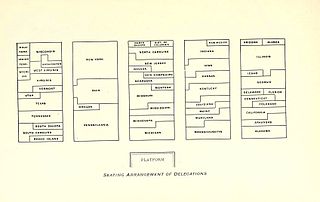
The 1896 Democratic National Convention, held at the Chicago Coliseum from July 7 to July 11, was the scene of William Jennings Bryan's nomination as the Democratic presidential candidate for the 1896 U.S. presidential election.

Bourbon Democrat was a term used in the United States in the later 19th century (1872–1904) to refer to members of the Democratic Party who were ideologically aligned with conservatism or classical liberalism, especially those who supported presidential candidates Charles O'Conor in 1872, Samuel J. Tilden in 1876, President Grover Cleveland in 1884–1888/1892–1896 and Alton B. Parker in 1904.
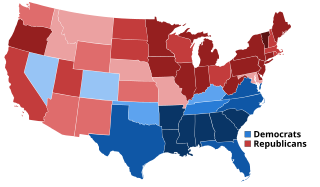
The Fourth Party System is the term used in political science and history for the period in American political history from about 1896 to 1932 that was dominated by the Republican Party, excepting the 1912 split in which Democrats held the White House for eight years. American history texts usually call the period the Progressive Era. The concept was introduced under the name "System of 1896" by E.E. Schattschneider in 1960, and the numbering scheme was added by political scientists in the mid-1960s.
Karen Orren is an American political scientist, noted for her research on American political institutions and social movements, analyzed in historical perspective, and for helping to stimulate the study of American political development.

Studies in American Political Development (SAPD) is a political science journal founded in 1986 and presently published by Cambridge University Press. It is the flagship journal of the American political development (APD) subfield in political science.

The William Jennings Bryan House, also known as Fairview, is a historic house museum on Sumner Street in Lincoln, Nebraska, United States. Built in 1902-03, it is noteworthy as the home of politician William Jennings Bryan (1860-1925), and was declared a National Historic Landmark in 1963. It is located on the Bryan Health hospital campus, and houses museum displays related to Bryan on the ground floor and the William Jennings Bryan Institute on the upper floors.

In 1896, William Jennings Bryan ran unsuccessfully for President of the United States. Bryan, a former Democratic congressman from Nebraska, gained his party's presidential nomination in July of that year after electrifying the Democratic National Convention with his Cross of Gold speech. He was defeated in the general election by the Republican candidate, former Ohio governor William McKinley.

The 1900 United States presidential election took place after an economic recovery from the Panic of 1893 as well as after the Spanish–American War, with the economy, foreign policy, and imperialism being the main issues of the campaign. Ultimately, the incumbent U.S. President William McKinley ended up defeating the anti-imperialist William Jennings Bryan and thus won a second four-year term in office.

The 1908 U.S. Presidential election occurred in the backdrop of the Progressive achievements of U.S. President Theodore Roosevelt's second term as well as against the U.S. recovery following the Panic of 1907. In this election, Roosevelt's chosen successor, Republican William Howard Taft, ran in large part on Roosevelt's Progressive legacy and decisively defeated former Congressman and three-time Democratic U.S. Presidential candidate William Jennings Bryan. Overall, the 1908 presidential campaign and election were about labor issues, trusts, campaign finance reform, imperialism, and corruption.

The 1896 United States presidential election in Idaho took place on November 3, 1896. All contemporary 45 states were part of the 1896 United States presidential election. Idaho voters chose three electors to the Electoral College, which selected the president and vice president.
